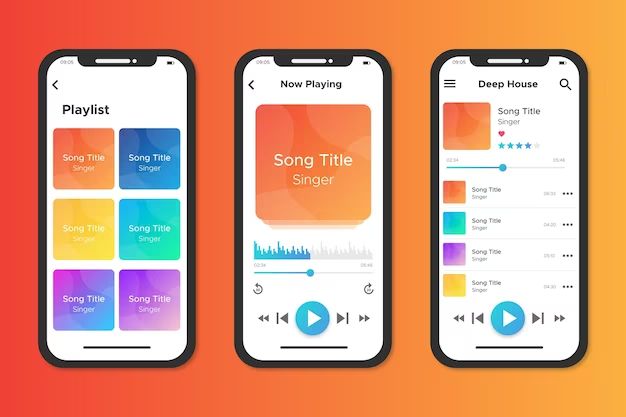Apple Music is one of the most popular music streaming services, offering access to over 90 million songs. But exactly how many tracks are available on Apple Music? In this article, we’ll take a deep dive into Apple Music’s catalog size and how it compares to other top streaming services.
How Many Songs Does Apple Music Have?
According to Apple, there are now over 90 million songs available on Apple Music. This includes not only official releases but remixes, live versions, and cover songs. Apple has not provided an exact official count recently, but based on announcements over the past few years, we can estimate the Apple Music catalog size:
- June 2019: Over 60 million songs
- June 2021: Over 75 million songs
- May 2022: Over 90 million songs
So in the span of 3 years, Apple Music has increased their catalog size by over 50%, adding at least 30 million tracks since 2019. They continue to aggressively expand their catalog, signing new deals with independent labels and distributors.
How Does Apple Music’s Catalog Compare?
Apple Music has one of the largest music catalogs among major streaming services. Here’s how it compares to key competitors:
| Service | Catalog Size |
|---|---|
| Apple Music | Over 90 million |
| Spotify | Over 82 million |
| Amazon Music | Over 90 million |
| YouTube Music | Over 80 million |
| Tidal | Over 70 million |
Apple Music matches Amazon Music as the top services, with the largest catalogs. Spotify trails slightly behind with 82 million tracks. YouTube Music and Tidal have smaller libraries, likely due to a more limited set of label deals.
However, catalog size isn’t everything. The quality and depth of the catalog matter too. For example, while Apple Music and Amazon Music have matched each other on total track count, Apple claims it has more exclusive releases from major artists.
Factors That Determine Catalog Size
What accounts for the massive size of the Apple Music catalog? Here are some key factors that allow it to offer over 90 million songs:
Label and Publisher Deals
Apple has agreements with all the major labels – Universal Music Group, Sony Music Entertainment, and Warner Music Group. This provides them with access to vast recordings from top artists. Independent label deals also bolster the catalog. Apple claimed to have paid out $1 billion to indie rights holders in 2021 alone.
Self-Published Artists
Tools like Apple’s Garageband make it easy for budding artists to create and self-publish songs straight to Apple Music. This long tail of DIY musicians contributes many niche tracks.
Dj Mixes and Remixes
Apple Music hosts official and unofficial extended mixes, dj remixes, and mashesups. These iterated versions of songs count as distinct tracks.
Regional Variations
Apple Music catalogs music across 167 countries, each with distinct regional tastes. Local hits like K-pop, African pop, and Indian filmi music expand the catalog’s diversity.
Live Recordings
Booted recordings of live concerts are an untapped reservoir of content. Apple partners with companies like Mixcloud to host live DJ sets and other exclusive live content.
How Complete Is Apple’s Music Catalog?
Despite having over 90 million songs, Apple Music does not have 100% of all recorded music. Based on estimates of worldwide song production, Apple Music has major gaps:
- Total worldwide songs released: over 200 million
- Songs registered with copyright offices: around 60 million
- Tracks available on any streaming service: estimated at around 40 million
So Apple Music has only about 45-50% of all known recorded music. Many older, obscure, and forgotten tracks have still not been digitized for streaming. Filling these catalog gaps comes down to licensing and digitization challenges.
Challenges in Completing the Catalog
Why are millions of tracks still missing from Apple Music? A few key challenges stand in the way:
Rights Issues
The copyright status of many older tracks is ambiguous, making licensing difficult. Rights must be researched and negotiated on a song-by-song basis.
Physical Media to Digital
Actually digitizing decades of recorded music is time-intensive. Much remains trapped on old formats like cassette tapes and vinyl.
Obscure and Lost Recordings
Rare tracks forgotten in record label vaults or personal collections are extremely hard to resurrect. These require extensive music archaeology to uncover.
Niche and Outsider Music
Music from hyper-niche genres like field recordings, amateur music, and self-released cassettes are challenging to identify and collect.
While the sheer volume makes a 100% complete catalog virtually impossible, streaming services like Apple Music will continue working to get as close as possible.
Theoretical Limits to Apple’s Catalog Size
Is there an upper limit to how big Apple Music’s catalog could get? Let’s look at a few theoretical scenarios that could maximize the catalog:
Perfect Rights Clearance
If Apple could perfectly identify rights holders and negotiate licenses for all 200+ million tracks ever recorded, this would be the theoretical ceiling.
AI-Generated Music
Advances in AI could soon allow software to automatically generate unlimited unique songs. An endless stream of AI music could quickly surpass 200 million tracks.
Procedural Music
Procedural music algorithms can create dynamic soundscapes in real time. If each unique permutation counted as a track, procedural music could offer near-infinite catalog potential.
User-Generated Content
Apple Music currently only includes “official” content from artists. If they opened the floodgates to user-generated covers, remixes, and uploads, the catalog could grow indefinitely.
Realistically though, music licensing limitations and storage costs will likely keep Apple’s catalog firmly under 1 billion tracks for the foreseeable future.
The Bottom Line
Apple Music offers an impressively vast catalog approaching 100 million songs. Yet millions of tracks remain unavailable, locked in the analog past. As both AI music and music archaeology advance, streaming catalogs may keep growing indefinitely. But Apple Music’s 90+ million songs ensure your music listening experience will never run dry.
